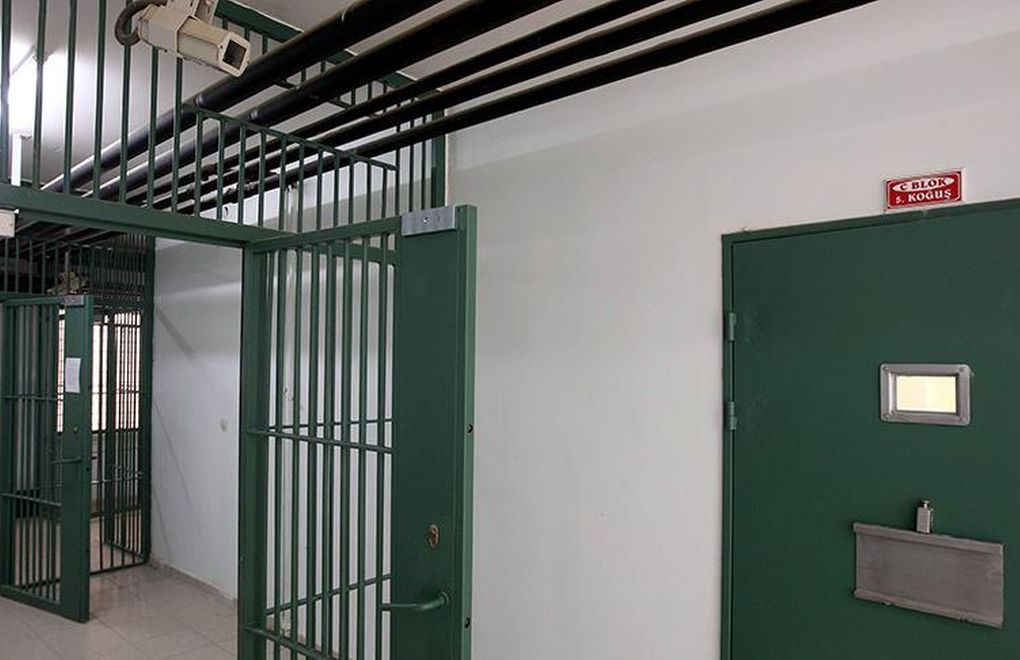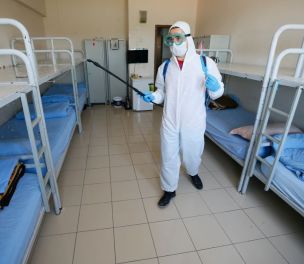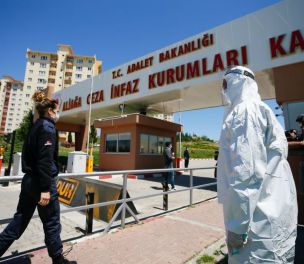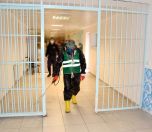* Photo: Anadolu Agency (AA)
Click to read the article in Turkish
The Civil Society in the Penal System (CİSST) Association has prepared a report based on the complaints of prisoners that were received by its advisory hotline from April 15 to 28, 2020.
Having compiled the complaints coming from 68 different prisons, including three closed prisons, across Turkey amid Covid-19 pandemdic, the report has kept the names of prisoners and prisons confidential.
Accordingly, the CİSST report has noted that the capacity problem in prisons has been persisting for a long time, which brings about several violations of rights. In this context, it has been underlined that prisoners cannot keep their social distance due to overcrowding in their wards.
'Neither personnel, nor prisoners have masks'
Some complaints documented in the report are as follows:
* While some prisons are disinfected, others are not.
* Several prisons are not regularly cleaned. Prisoners clean the common use areas in prisons with their own means.
* Even though some wards are not disinfected, ward representatives are made to sign papers indicating that the wards have been disinfected.
* While wardens wear masks in some prisons, they partly wear them or do not wear at all in other prisons.
* Disinfectants are sold at the canteen for 10 to 45 lira.
* Prisoners are not provided with masks.
* Cleaning products are not supplied free of charge. The prisoners who cannot afford them are not provided with these products.
* As open prisons have been emptied due to leaves, there are problems with distributing the food prepared in open prisons. The food given to closed prisons is limited and of low quality and not hygienic.
* Measures are not taken for ill, old and risky prisoners, masks and cleaning products are not handed out. Prisoners take their own precautions.
* Though there is a decision to renew the reports of chronically ill prisoners without being referred to hospitals, this decision is not abided by.
* All prisoners are now more concerned about being referred to hospital for fear of catching the virus while being held in quarantine for 14 days when they return to prison. The prisoners who cannot sustain their lives by themselves do not want to be referred to hospital as they do not know how to meet their needs on their own in quarantine.
* Seriously ill prisoners who had to go to hospital are held in quarantine when they return from the hospital and they experience several problems as they cannot meet their needs by themselves.
New measures
Prisoners have also raised the following complaints about the new measures adopted in prisons against the outbreak:
* Ill treatment of prisoners and psychological pressure on them have increased in some prisons.
* In some prisons, prisoners are prevented from sending letters and writing petitions, they are not given the letters and newspapers coming from outside.
* The prisoners scheduled to take a leave have to use a bus to go home and they have financial difficulties in buying bus tickets.
* In some prisons, the prisoners who have the right to take a leave as part of coronavirus measures, but cannot use this right due to financial hardships are told to continue staying in the penal institution.
* In some prisons, the bus fares are deducted from the money deposited in prisoners' bank accounts without their request and they cannot access the money in their accounts despite being in need. (EMK/SD)








